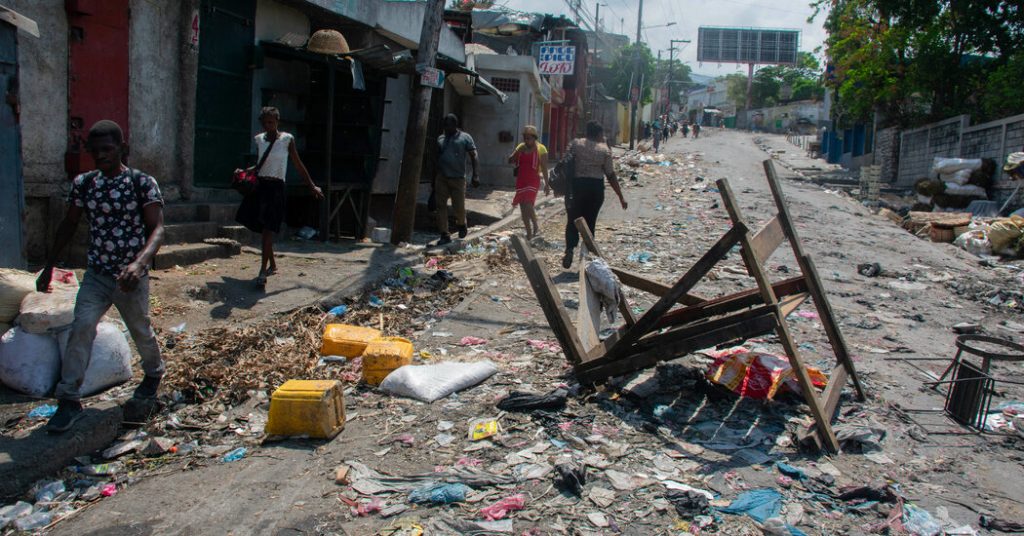A new transitional ruling council has been established in Haiti to address the escalating gang violence and worsening humanitarian crisis in the country. The council’s formation was announced in a state-run bulletin after gangs prevented Prime Minister Ariel Henry from returning to the country, ultimately leading to his resignation. The council’s main objectives are to restore law and order by appointing an acting prime minister to head a new government and pave the way for the election of a new president. The establishment of the council was agreed upon by a coalition of armed gangs that have overrun much of the capital, Port-au-Prince, since late February.
The council’s members include representatives from Haiti’s main political parties, the private sector, civil society, the Haitian diaspora, and religious leaders. All members agreed to support the deployment of a 2,500-member multinational security force led by Kenya to combat the gangs. Those facing sanctions or intending to run in the next election were excluded from the council. Despite threats from gang leaders like Jimmy Chérizier, known as Barbecue, the installation of the council has been seen as a positive step in addressing the country’s security challenges. However, questions have been raised about its constitutional legitimacy, and concerns remain about the council’s ability to govern safely in an environment of widespread insecurity.
Challenges still remain for the council, including securing funding for the multinational security force to combat the gangs. While the Biden administration has pledged $300 million for this purpose, only $10 million has been approved by Congress so far. U.S. Representative Sheila Cherfilus-McCormick emphasized the urgency of the situation, stating that Haitians cannot wait any longer for the security mission to be implemented. The administration has pushed for the installation of the transition council, with the recent arrival of a new U.S. ambassador reaffirming the commitment to support Haiti during these difficult times.
The United Nations’ human rights office has reported more than 1,500 deaths in Haiti this year, highlighting the catastrophic situation in the country. Corruption, impunity, and poor governance, coupled with increasing gang violence, have pushed Haiti’s state institutions to the brink of collapse. The shutdown of the main port in the capital has led to shortages of food and fuel, exacerbating the humanitarian crisis. International humanitarian agencies have warned that Haiti is facing unprecedented levels of food insecurity as gangs block farmlands and roads, extorting those attempting to deliver supplies.
Local and international efforts are underway to address the crisis in Haiti, with a focus on establishing a new cabinet and prioritizing the needs of the population. The World Food Program has cautioned that its stocks in Haiti could run out by the end of the month, underscoring the urgent need for action. Security consultant Reginald Delva has emphasized the critical nature of the situation, urging political leaders to put their differences aside and focus on addressing the country’s pressing challenges. The transition council faces the daunting task of restoring stability and security in Haiti while navigating complex political and security dynamics, with the hope of alleviating the suffering of the Haitian people.








